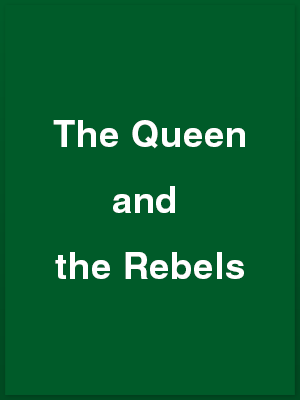Review #1: The Queen and the Rebels
Publication: Shoreham Herald
Publication Data: May 12 issue – page 8
Reviewer: C.S.P
Text Header: “Compelling Acting in Wick Drama”
Text: Content
Some really compelling acting in a drama unfolded at a cracking pace assures the success of this week’s production by the Wick Theatre Company, at the Barn Hall., Southwick, of Ugo Betti’s The Queen and the Rebels.
Set in a hillside village, apparently well east of the Iron Curtain, in a country in the throes of revolution against its Queen, this play could, in less competent hands, have been as tragic as the tale it unfolded. But under Bess Blagden’s imaginative production, the cast really gets to grips with the grim realities of a country in chaos, and there are some very testing rôles sustained with real merit. The fifth and final performance is tomorrow [Saturday}.
The acting abilities of Jean Porter, as Argia, the opportunist, who believes in sailing with the prevailing winds of change but who takes pity on the fleeing Queen and dooms herself to a firing squad in the process, prove fully up to the occasion. Her performance is one of moving depth and intensity – quite her best to date. Hitherto confined to unimportant rôles, Wendy Rogers seizes her opportunities as the Queen disguised as a peasant and distraught with fear for her life, and she contributes in some depth to the unfolding drama. Jim Bebbington, not without acting experience but new to the Wicks [sic], plays Raim, the interpreter, with a fine realism and brings out the whole shallowness of his rôle. There are full-blooded appearances by Ralph Dawes, as Biante, the wounded general, and by David Creedon, who induces spine-chilling moments as the soulless Commissar.
Also contributing appreciably to the play’s overall effect are David Goodger [porter], Barrie Bowen [engineer], Ross Workman [guard], Tony Sellwood and Christopher Dunn [travellers], Terry Phillippe [soldier] and little Yasuda Avery [peasant boy], and peasant women are played by Doris Rumpus, Sally Bishop, Maureen Hammonds, Sue Peaty and Rosemary Pigott.
The grim setting is wholly appreciated. Assisting backstage are Ian Leavey, Vincent Joyce, Frank Hurrell, Bob Baker, Terry Mase, Morfydd Bowen and Frances Thorne and Margaret Perrett.
Review #2: The Queen and the Rebels
Publication: Unknown
Publication Data: Unknown
Reviewer: Unknown
Text Header: “Not Up To Their Usual Standard”
Text: Content
Ugo Betti’s The Queen and The Welshman is an over-stated play and, particularly in the final scene, unduly repetitive. This presents problems for actors and producer when it comes to bringing the thing to life. Wick Theatre Company nearly overcame them but there were times when the play was tedious. Perhaps, too, from the point of view of the audience, the excesses of revolutionary fervour have been shown to us too often both in fiction and in fact so that the impact is lost.
David Creedon played the part of Commissar Amos, a dedicated revolutionary and, I feel, played it with too much emotion. The cold blooded decision to kill, ‘for the good of the people’ must be an intellectual decision or the decision of blood-lust. I should have preferred coldness and detachment. However, in the convention in which he played the part, he played it well.
Argia, who is mistaken for the Queen by the rebels was played by Jean Porter, who seemed almost self-conscious in the rôle as if, perhaps, she did not entirely believe in herself. Elisabetta, the Queen, played by Wendy Rogers could have shown at least the superficial trappings of an erstwhile queen. Frightened, indeed, she was, but there must be a flash of regality.
David Goodger was excellent as the all-things-to-all-men hall porter, Orazio and Barrie Bowen spoke with the right authority as the engineer. Jim Babbington as the interpreter Raim did not realise the power of the part, and Ralph Dawes as Biante, the General, seemed a little robust for a man presently to die. Other parts were played by Ross Workman, Tony Sellwood, Christopher Dunn, Doris Rumpus, Sally Bishop, Maureen Hammonds, Sue Peaty, Rosemary Pigott, Terry Phillippe and Yasuda Avery.
Possibly Bess Blagden’s direction lacked firmness but all-in-all I found the production less satisfying than most Wick Theatre company presentations.





